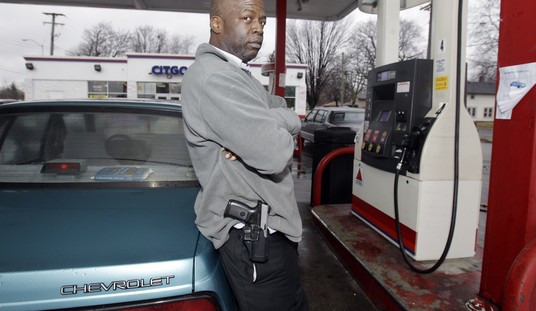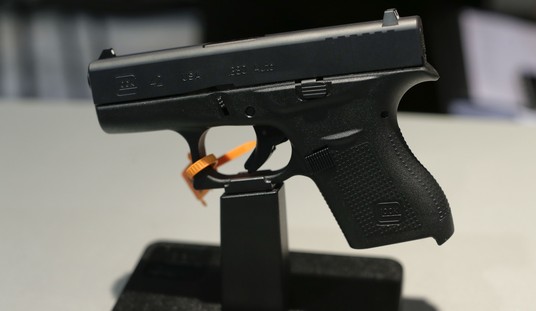Regardless of what state you live in, the majority of people in the media tend to lean to the left. That’s why we see so much news seeming to highlight anything that could serve as ammunition against the Second Amendment and so little said about anything that might illustrate gun control’s failures. For example, the media latches onto suicide-by-firearms being down in states with red flag laws and ignore that overall suicides are actually up in those states.
In Texas, things are dicey for Second Amendment advocates, a position they’re not really used to in the Lone Star State. After all, two high-profile mass shootings mere months apart can rattle anyone.
However, the media wants to latch onto that and apparently argue that Texas has a particular problem with mass shootings. After all, there have been seven there since 2009.
What lacks in that number, though, is context.
First, let’s remember that Texas is a very large state, both in landmass and population. In fact, if Texas were in Europe, it would be the tenth largest nation by population, with somewhere around 29 million people.
Out of those 29 million people, seven disturbed individuals opted to become mass shooters in the last decade.
When you look at it that way, mass shootings aren’t really likely to become common events, now are they?
In fairness, it’s also possible that at least some of those 29 million could have been mass shooters but for some other factor preventing them, like maybe they were committed for psychiatric treatment or arrested on various charges, something that thwarted their efforts. Even so, the number is likely to also be relatively low.
While seven disturbed souls became mass shooters in the last decade, only 11 mass shootings have taken place in Texas since 1982. That suggests something in our culture is driving these attacks. After all, what gun laws really changed since 1982?
The only one worth mentioning is the 1996 Assault Weapon Ban that sunset in 2006. Proponents of an assault weapon ban argue that it will work to prevent mass shootings. However, 62 percent of all mass shootings are carried out with handguns. Just 25 percent involve what the media refers to as “assault weapons.” It’s highly unlikely that an assault weapon ban had any impact on mass shootings, at least with regard to frequency.
Meanwhile, it should also be noted that California has a population of just under 40 million, so about a third larger than Texas. Yet, since 1982, that state has had not just ever-expanding gun control laws but also 20 mass shootings. That’s almost twice as many.
That said, even in California, mass shootings are exceedingly rare events.
While the news report linked above decided to focus primarily on how those mass shootings impacted public opinion, it’s worth noting that this important context, namely that these attacks are so exceedingly rare as to amount to statistical noise and aren’t a sound basis for which to discuss legislation.
Texas isn’t plagued by mass shootings. While it’s troubling that so many of them have taken place, we need vital context such as this. However, there’s other context missing.
For example, two of those shootings listed in the link are on Fort Hood. While both of those incidents are in Texas, sure, they were on a military base. For those who have never served, it’s easy to think of military bases as the epitome of an armed society, but they’re not. They’re highly controlled environments when it comes to firearms. They’re the ultimate gun-free zones.
How did those work out?
It’s especially important that people realize that Texas law had little to no impact on the Fort Hood shootings. Texas law begins and ends at the base gates. Even if guns were readily available in the state, they’re essentially forbidden unless required for duty. For most people, they’re not.
If you remove those two shootings, shootings that Texas gun control laws and the lack thereof had nothing to do with, you end up with just nine mass shootings since 1982 and five since 2009.
Now, don’t get me wrong. Something is wrong here. However, highlighting the number of mass shootings in the second most populated state in the country and providing no point of reference isn’t likely to help people understand what they’re hearing. Yes, people are panicky. I don’t blame them, truth be told. That doesn’t change the fact that gun control won’t help them.
Something is broken within a small minority of people, nothing more. Until people start looking at that, nothing will change. Ever.








